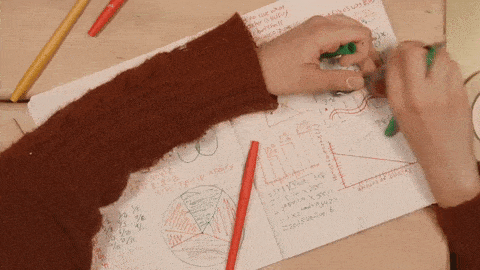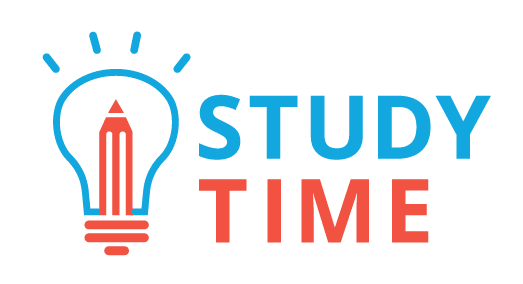Retrieval methods refer to the ability to access information from your noggin when you want, where you want. It’s how we’re able to remember the right information at any given point in time.
If your brain is like a restaurant, retrieval would be like going out into the back stockroom to find more ingredients.
Closely tied to retrieval is the concept of retrieval cues. These are the things that remind you of certain pieces of information. It’s helpful when we learn that we have good retrieval cues that take us to the right place.
Using the same example above, retrieval cues are kinda like how well the back stockroom is organised, how good the instructions to find the right thing was, and if everything is labelled correctly and on the right shelf.
Today we’ll be diving into both retrieval and retrieval cues, explain why it’s so important to exam testing and we’ll even use some science to back it up.
Some Background on the Brain
Retrieval, in short, is getting information from your long-term memory back into your working memory so you can then work with the information. What’s working memory? You may ask. Well, that’s the limited space in your brain that is responsible for working with and holding information temporarily.
Your long-term memory is created by encoding information from your short-term memory to your long-term. When we study, we’re refreshing and strengthening the connections in our long-term memory. Just like walking over a dirt path, the more we tread, the deeper and better made the path is.
That’s kinda what studying does, it refreshes these connections and helps prevent a loss of information over time. By this, you’d think that study alone is enough to create some solid paths that you’re easily able to navigate later (think, in an exam).

Unfortunately, this isn’t always the case.
We may create strong connections and have pretty well-tread paths in our brain through study. However, it doesn’t always mean our brain can easily find that path later.
We’ve all had that feeling in an exam when we know we know something, but we just can’t quite access it. That’s due to a lack of retrieval practice. If study makes the neural connections in our brain stronger, retrieval practice is creating a map and signposting where everything is.
Therefore, retrieval practice is a greatly helpful tool in testing/examination conditions because you’re practising pulling information from your head on-demand. Just like during an exam.
Well, What are Some Good Methods then?
Think of a song you know really well. Chances are, you remembered the song from one of two points:
- The beginning line
- The chorus
If someone asks you to recite a song from the middle of the second verse, you’re probably gonna struggle a little. You might run through the song in your head until you reach the second verse, then go from there.
The reason it’s difficult is that you have retrieval cues attached to these points of the song. The beginning because, well, it’s the beginning. Remembering the chorus is also easy because it’s repeated throughout the song, and is usually indicated with a time change or a key change.
You also have all the lyrics to your favourite song down because you practice it over in your head, listen to it, and sing it aloud. In study, we would call these actions test enhanced learning and it’s great for long term retention of knowledge.

So, how do we best incorporate these ideas into study methods?
Writing Prompts
You’ll be writing (or typing) your final exam, therefore, it’s useful to create writing prompts to get your brain on the right track.
These can be kept relatively short and general, it just has to be a starter that will get you into the writing spirit. You can use it for your own writing practice at home, but will also serve as a useful starter in an exam.
Some prompts can be things like:
- For photosynthesis, plants need to ______
- The vertex of a parabola tells us ______
- Pressure is defined as ______
It’s good to relate these prompts to common exam questions to keep the phrasing and format as similar as possible.
Concept Maps and Visual Organisers
If a bunch of writing isn’t your forté, try some kind of visual organiser like a concept/mind map, Venn diagram, flow chart, timeline or table.

These are incredibly useful tools to understand how concepts relate to each other. Not only this, but they can act as a mental snapshot of information where you can visualise all of the points coming from a concept. Now, if you’ve done a dash with NCEA exams at all, you’ll know they love nothing more than a student who demonstrates an understanding of interconnected concepts.
How does this relate to retrieval? Well, visually laying out the information, and creating lines and arrows between the points creates something to remember in the exam room. Unsure of how to answer a question? Visualise the organiser and the main points connected to the topic.
Quizzes
Nothing will get you better prepared for a test than a practice test. Past papers work well on this front, as do sites like Quizlet, Anki and Kahoot if you’re wanting more of a group dynamic.
Other methods of quizzing that don’t rely on the internet are also great. Get a mate from class and test each other on different topics. You can help each other understand the concepts, as well as better interpret vague class notes. Two heads are always better than one!

Flashcards
We know you’ve been told that flashcards are a handy study tool and we’re sure you know how to make a flashcard. So, let’s focus on why they’re useful and exercises to get the most out of them.
Here are some guiding rules to get the most out of this tool:
- Shuffle the order of the cards: This will help prevent developing memory for the order of cards, rather than the material itself.
- Write full answers: If you’ve written a prompt asking to explain the units and symbols of an equation, make sure the other side has full explanations. Lazy explanations are going to reinforce partial retention of information.
- Match question prompts to what you might see in an exam: NCEA has specific wording, so you should match the prompts to this. E.g. “What does ‘in terms of’ mean?” Other worthwhile words to test are that of ‘describe’ and ‘explain’ which appear in almost all exams.
- Practice the ones you’re unsure of the most, but don’t forget to do a full run through every now and then: Flashcards are a great way of finding out the grey areas we need to focus on more. However, testing yourself on the full breadth of content is critical to practicing retrieval on the topic as a whole. We’ll get more into why in our next section.
On the whole, a retrieval strategy is when you’re recalling the information, i.e., reciting it from memory, not a resource. You might find some of these strategies are good for you and some aren’t, that’s cool. Take your own approach if none of them gels with you. As long as it’s relying on your body of knowledge, and not textbooks’, you’re on the right track.
The Science Behind Long-Term Retention
Alrighty, if you were only after study method ideas, here’s your heads up that we’re chugging along from that. Here, we’ll explain a bit about a study that compared studying vs. testing for long-term retention.
Four groups of people were asked to recall a list of items. Items here refer to foreign language pairs (e.g. le chat = cat). The four groups would either study or be tested in the following ways:
- All items were both studied and tested at each learning instance.
- All items were studied, but items which were correctly tested were removed from the list
- Only items not remembered were studied, but all items were tested regardless of correct remembering
- Only items that were not remembered were both studied and tested.
The final group here would be how most of us approach our study. Where we only focus on the concepts we’re unsure of, and we ignore the things that we previously tested correctly for.
The results found that testing, not studying, was the changing factor for promoting long-term recall. Repeated study sessions after one successful recall didn’t produce any measurable difference a week later. These groups scored about 36% and 33%. However, in the conditions that required repeated retrieval practise (i.e., testing), students correctly recalled about 80% of the pairs on the final test. Meaning that retrieval increased retention by around 45%.
We can also compare the number of tests the students completed. There was no significant difference between those who repeatedly studied and those that didn’t when testing was limited to words not-remembered in the last trial (groups 2 and 4 from the list above). In this, those who continuously studied had about 80 more study trials occur, showing that studying things over and over isn’t the key to retaining more information.
To compare, when about 80 more test trials occurred in the learning phase, repeated retrieval practice led to greater than 150% improvements in long-term retention. What this means is that testing, not studying, had more significant learning improvements.
What this study highlights are the powerful effects of testing on learning: Repeated testing enhanced long-term retention, whereas repeated studying produced essentially no benefit.
Tl;dr: The study found that students who were repeatedly tested on information (i.e. forced to retrieve the information as opposed to just recognising it via studying) had higher retention rates over a longer period of time than those who repeatedly studied.
What do we do with this information?
Breaking down a study is all well and good, but how is this applied to independent learning?
First off, we’re going to be a bit cynical and remind you that this study only looked at word pairs, not the complicated ideas you might have to explain in an exam. Unfortunately, externals aren’t fill-in-the-blank exercises. However, it does give us a good idea of what kinds of things to focus on while we study. Namely, that testing should be a key part of a study plan.
Exams are what we refer to as high-stakes testing, where the results are used to inform future decisions. High-stakes testing typically involves more stress and pressure, as the results dictate future options.

The best way to prepare for a high-stakes test is with low-stake testing. Essentially, mimicking testing conditions without any consequences for mistakes. These provide opportunities to learn and improve, without the fear of failure.
There’s no set format for a high-stakes test and a low-stakes test. Instead, it’s decided by the potential outcome (e.g. it contributes to passing a course, or there’s no consequence at all). So, here are some guidelines for creating a low-stakes test:
- Match the content to the exam, both in question format and the concepts tested.
- Time yourself, or allocate some time to work on a question.
- Ask questions about both the concepts, but also how the ideas are related to each other (NCEA loves asking compare and contrast questions).
- Mark your work! You’ll never know where you need to improve if you don’t know where you’re wrong.
Creating opportunities to test yourself, without the crushing pressure of being in an exam room, is a great way to check for gaps in your knowledge, but also refine your responses.
Creating Retrieval Cues for an Exam
Okay, so by now, we’ve hopefully convinced you that testing (i.e. retrieval practice) is a massively useful skill in your study kit. Now, let’s chat cues. Specifically, retrieval cues.
In short, a retrieval cue is a prompt that reminds you of something. In more ~scientific~ terms, retrieval cues facilitate recall. If we go back to the song example from earlier, the cue might be the beginning riff or the first word of the chorus. It’s the thing we go to remember the rest of the lyrics.
We’ve all silently wished we could remember school work as well as we remember Doja Cat’s ‘Say So’. While Doja has the one-up of being on almost every TikTok and therefore always present in our minds, we can somewhat mimic this effect for school learning.

We do this by creating small reminders that lead us to the rest of the information. We kinda think of it like a thread you pull, where the rest of the information is attached to that. Let’s take an example.
Biology loves naming things, and all of the names have slightly different meanings, despite sounding very similar. At Level 3, K-strategists and R-strategists are introduced to describe different breeding strategies of organisms. A way that this could be remembered is that ‘R’ stands for rabbit, and rabbits have lots of offspring with little investment from the parents. Meaning that R-strategists have lots of young and put little care into raising them. K-strategists are the opposite, so they have few young, that they care for a lot.
By tying the letter ‘R’ and ‘rabbit’ together, you can chunk the information, and because there are only two types of strategists here, you only need to remember one to then know the other.
Retrieval cues don’t even have to make a lot of sense, if you remember that the prefix ‘prop’ is 3 because that’s also the rugby position and number, then you do you. It’s to help you remember, so if it does that, then it works.
Acronyms
There are some learning methods that rely directly on retrieval cues. One of the most common is acronyms, both in learning and the everyday world.
In learning, acronyms are the bread and butter of teaching essay skills. While the funky acronyms taught can differ, the gist of what they’re saying is the same. From TEXAS to SEXY to COCONUT to PIE to SEAM to PEEL, they’re all just saying:
- Make a clear point
- Tell us why it’s a point (i.e. why are you bothering to bring it up)
- Give some examples about why your point is a point
- Link that point back to the overall argument (again, why are you bringing it up) and potentially some comparison to the outside world (i.e., why your overall thesis is worth discussing in the first place).

No matter what convoluted word it is you remember, it acts as a retrieval cue because you can rely on that to remember how to structure a paragraph. Acronyms work well in retrieving processes and things that follow steps because you’re creating a framework to go through in order.
Mnemonics
Okay, so technically acronyms are a type of mnemonic, but it’s common enough to deserve its own section. A mnemonic is a memory technique that helps you recall information, so it’s a slightly broader method than letters.
One method popularized by the character Sherlock Holmes was that of a mind palace. Although the on-screen depiction is a bit glamorised, there is some truth to this memory technique. Also referred to as the Method of Loci, or the Roman Room technique, you rely on visualisation to remember things.

Using a familiar space for this is useful because it’s attaching new knowledge to your prior memory. Say you’re learning about the Springbok Tour for your history essay, you could use your deskspace to visualise key pieces of information. You might visualise the red and blue police squads by a container of red and blue pens, and the protest group HART is on the other side of the table, led by a roll of mentos that John Minto is standing on.
It might sound stupid, or overly complex, but it can really help. A teacher of mine used this example when I was in high school with a shopping list, and I still remember that the bananas were by the stairs. It’s almost a curse at this point, just imagine if it had been useful information instead.
Another mnemonic classic are rhymes. Rhymes through songwriting is how Miley Cyrus remembered the bones in the body on Hannah Montana, and it can work for you too. It could be a one-liner like ‘an organelle is a lil organ in a cell’ or something longer if you’re wanting to procrastinate on GarageBand for a while. Rhymes may get irritating, but that’s because you can’t get them out of your head, which is what we’re aiming for here.
Wrapping up Retrieval
Hopefully, you’ve picked up an idea or two for your next study session, or at least a better understanding of how your brain files information away. Either way, best of luck for the upcoming exam season. Don’t forget to test yourself, and don’t get complacent with the things you think you know as well.
Your friend, StudyTime.

0 Comments